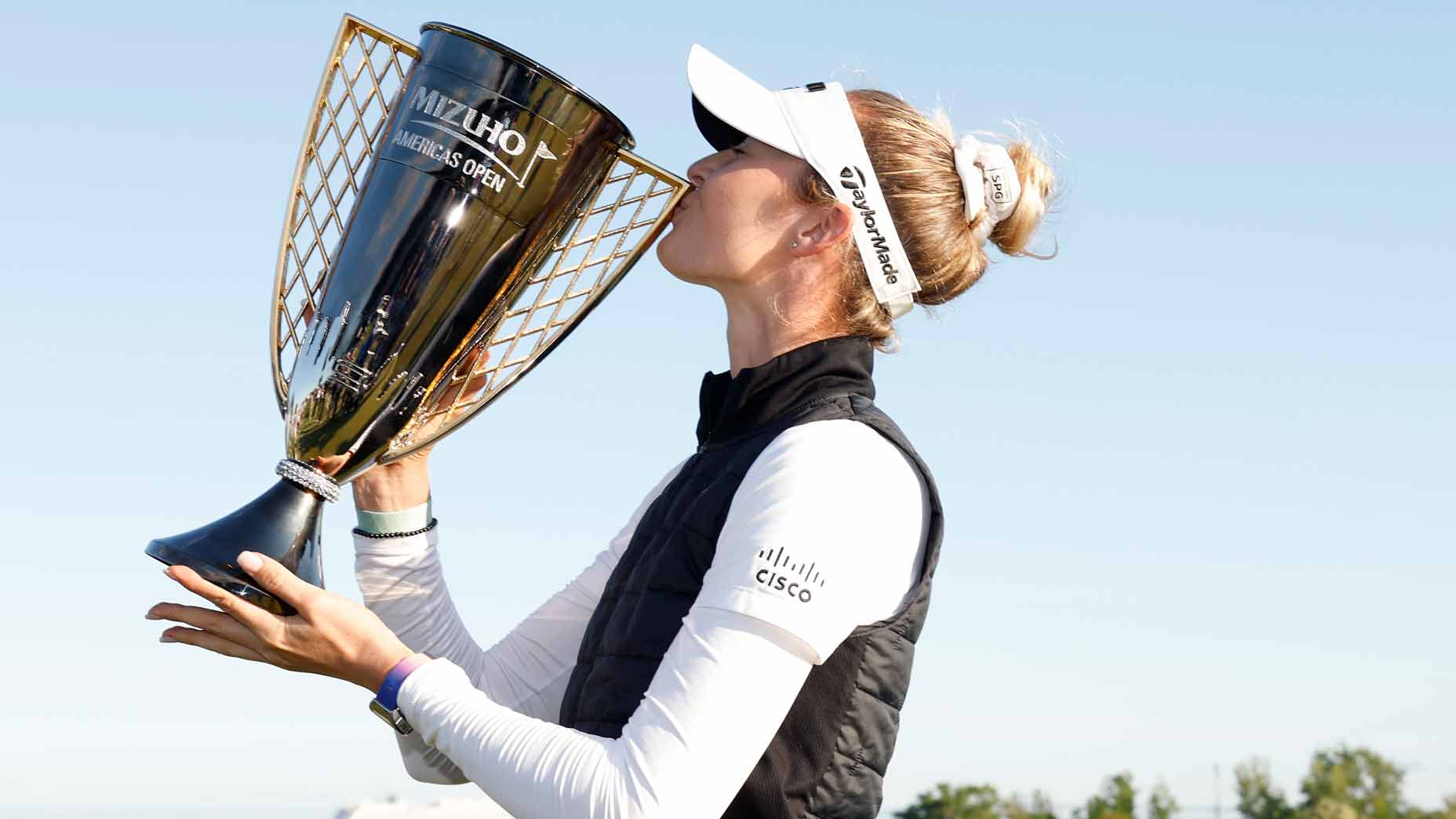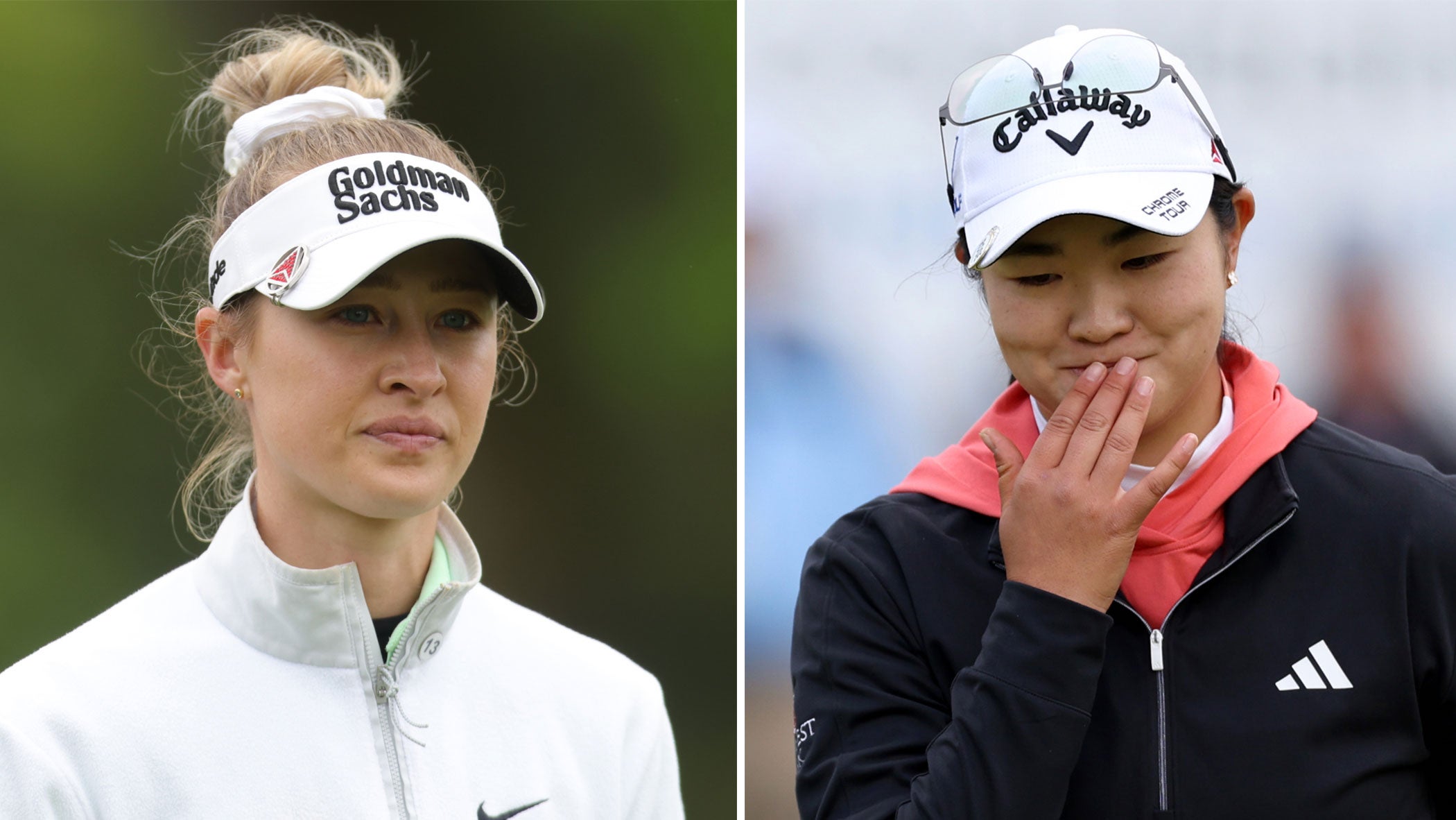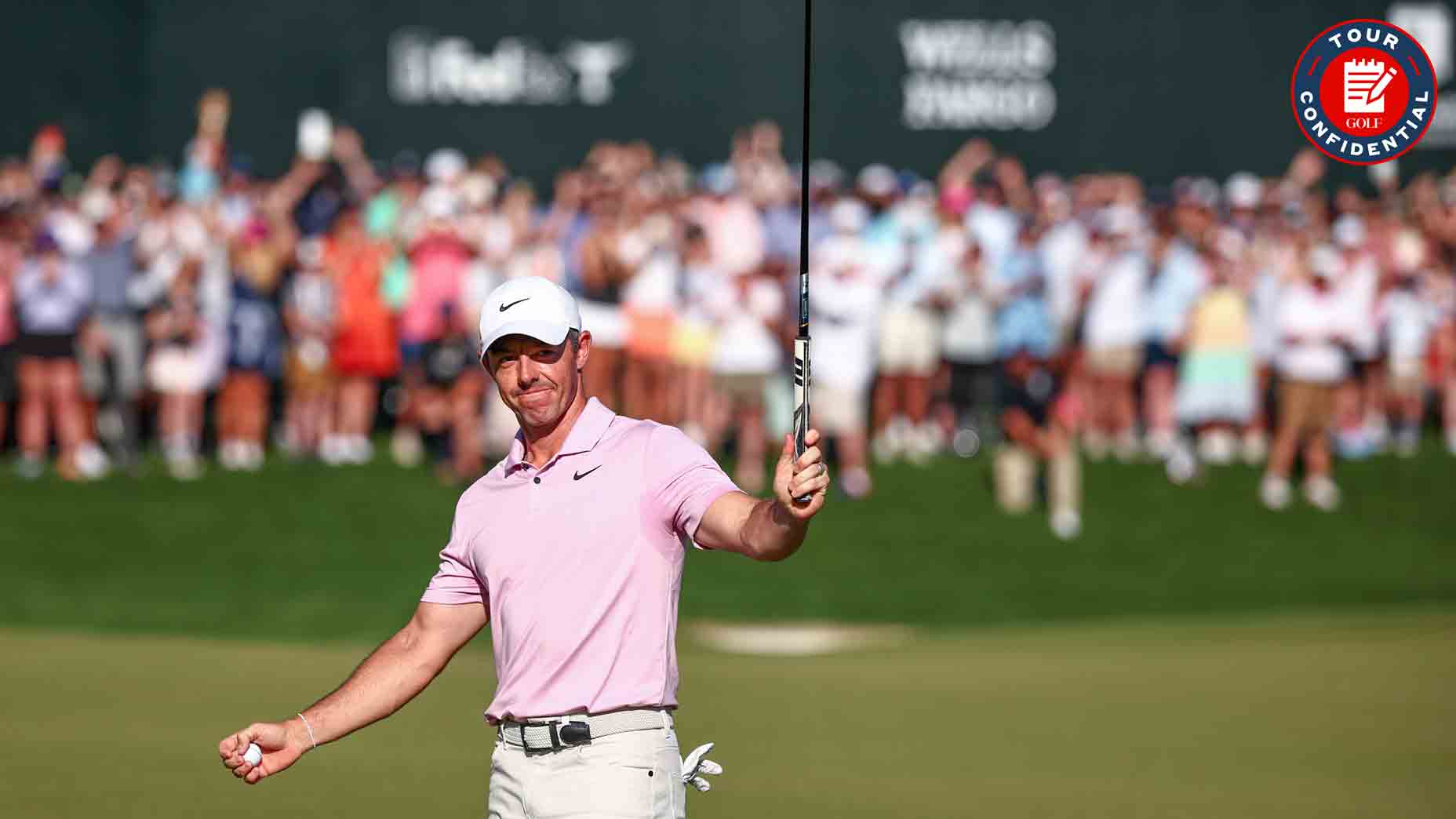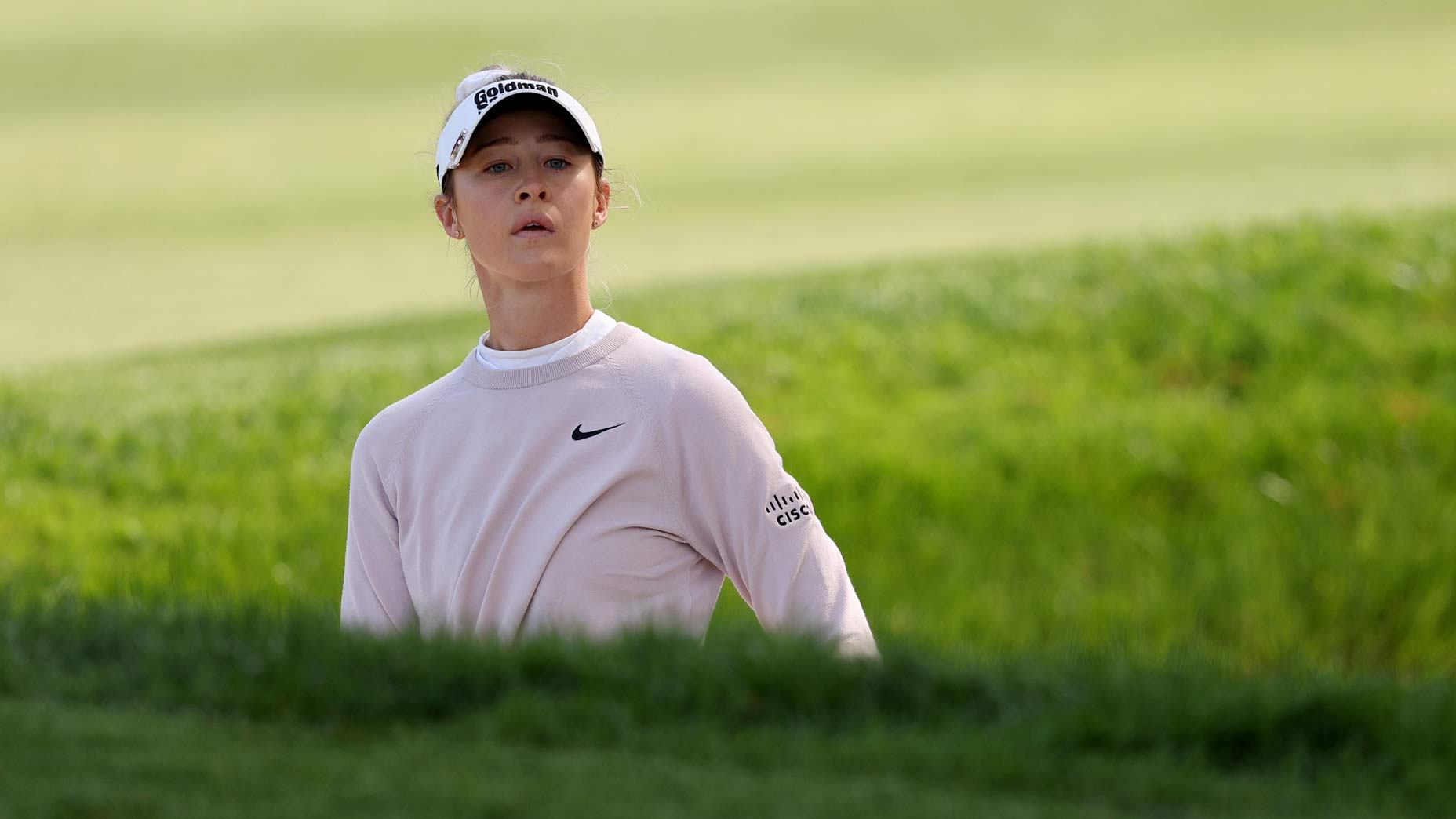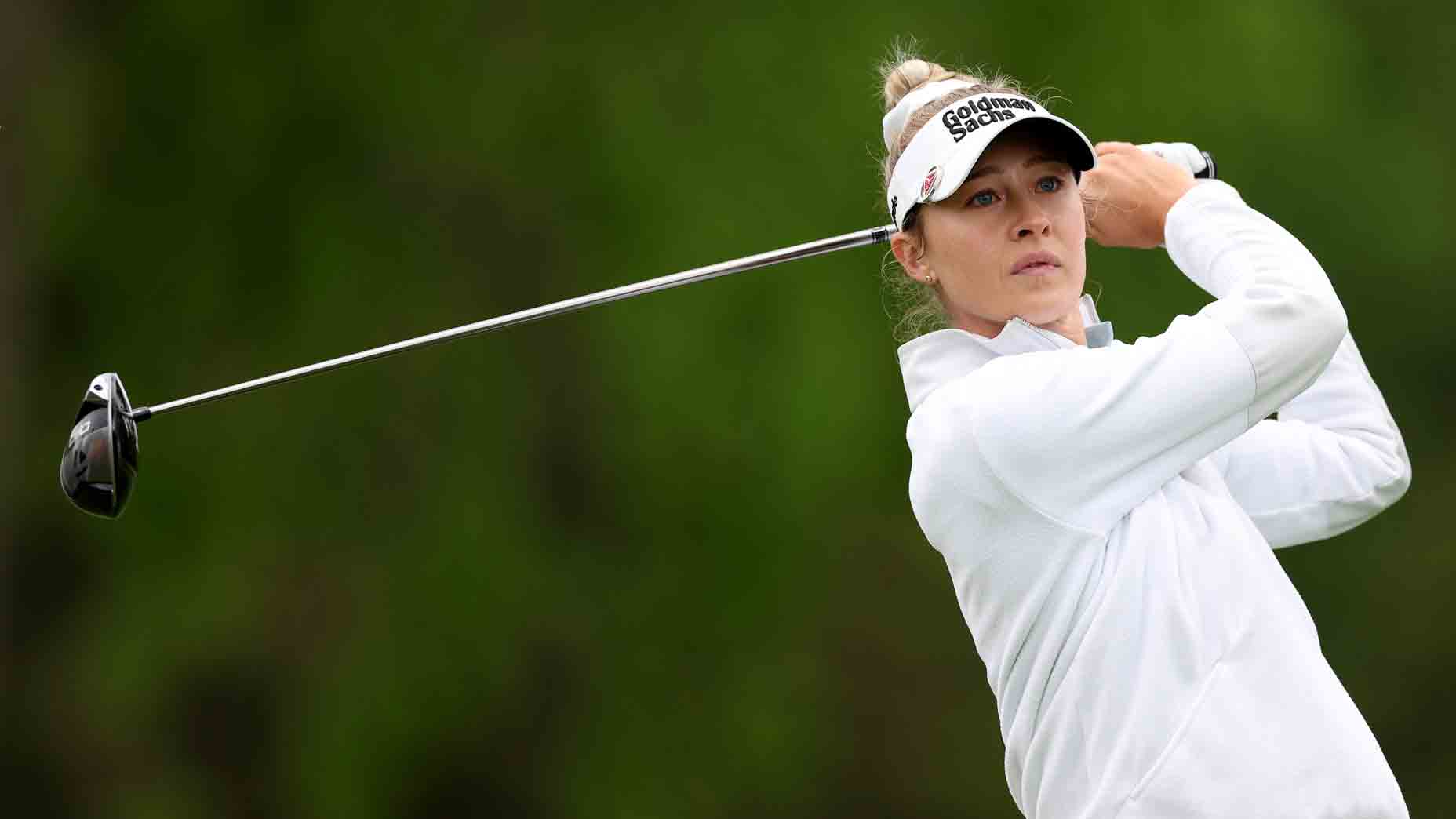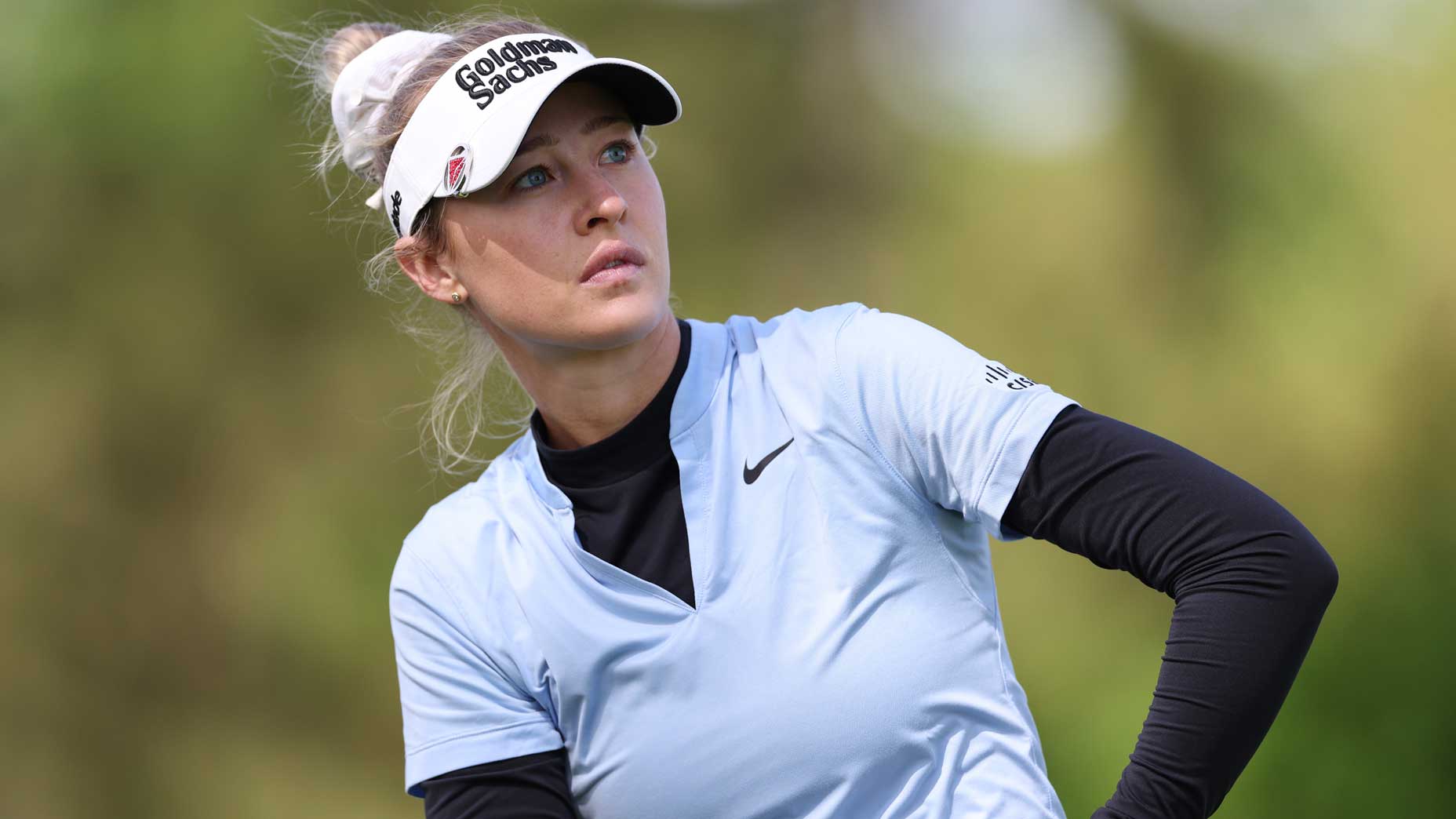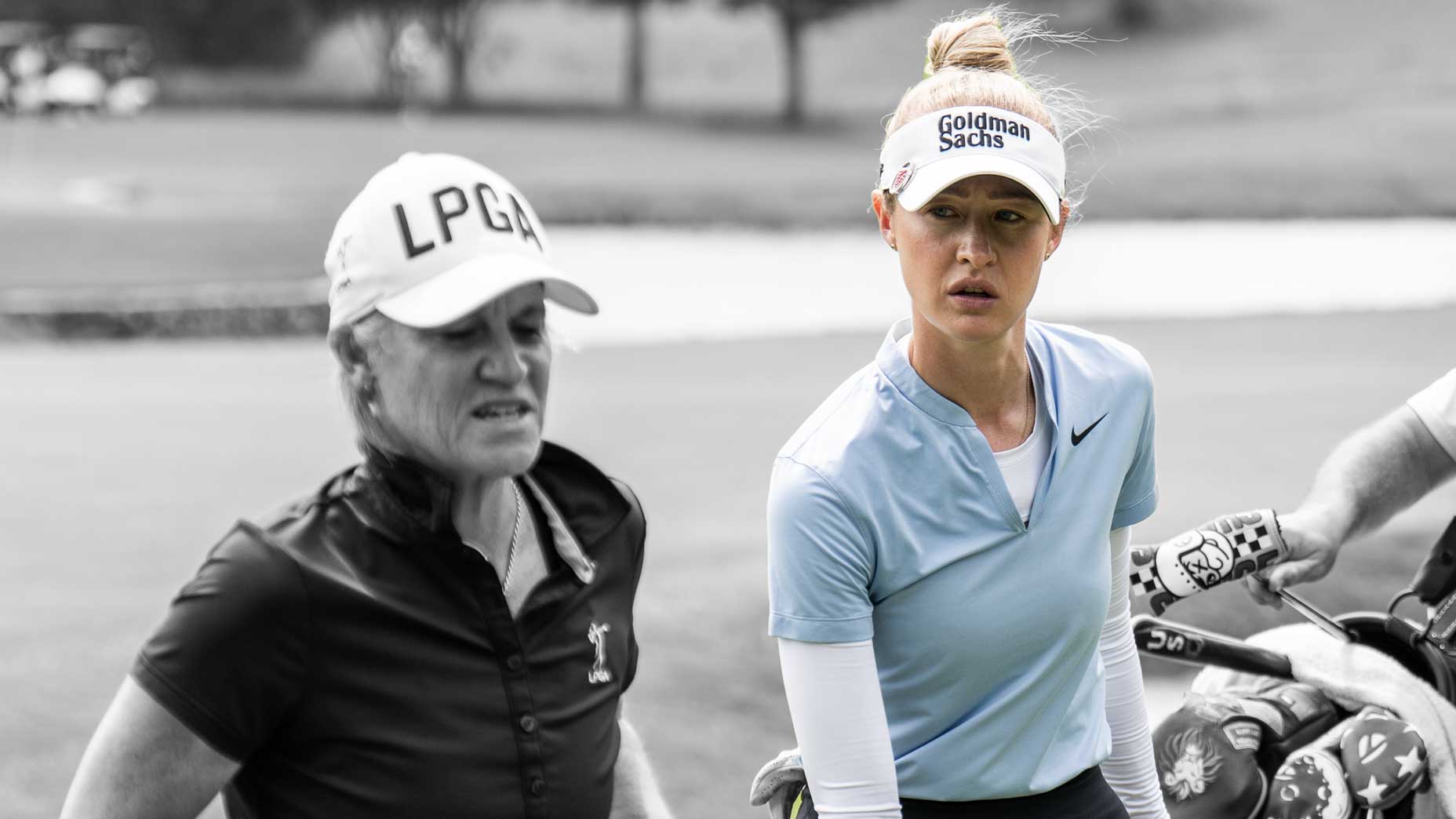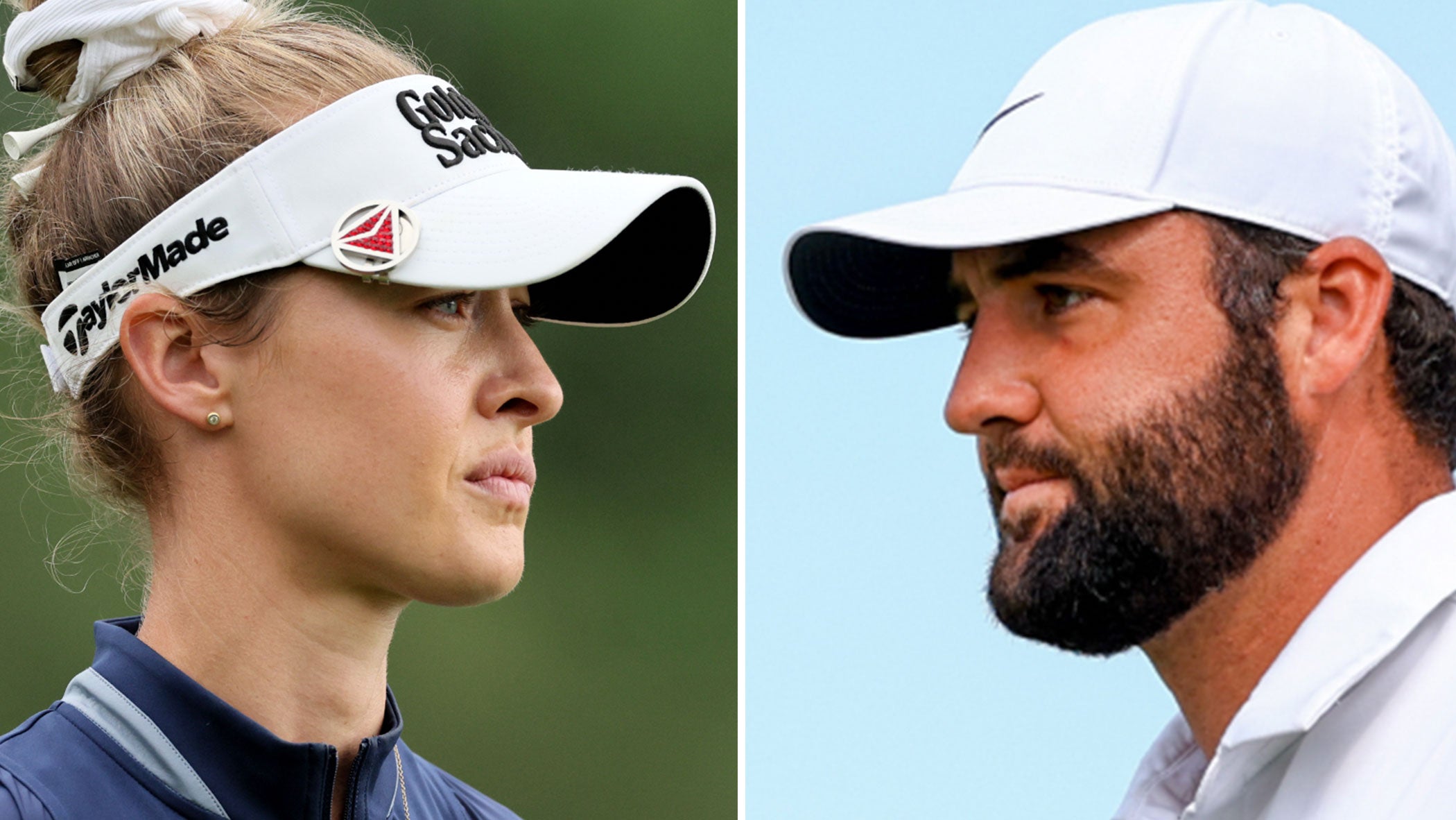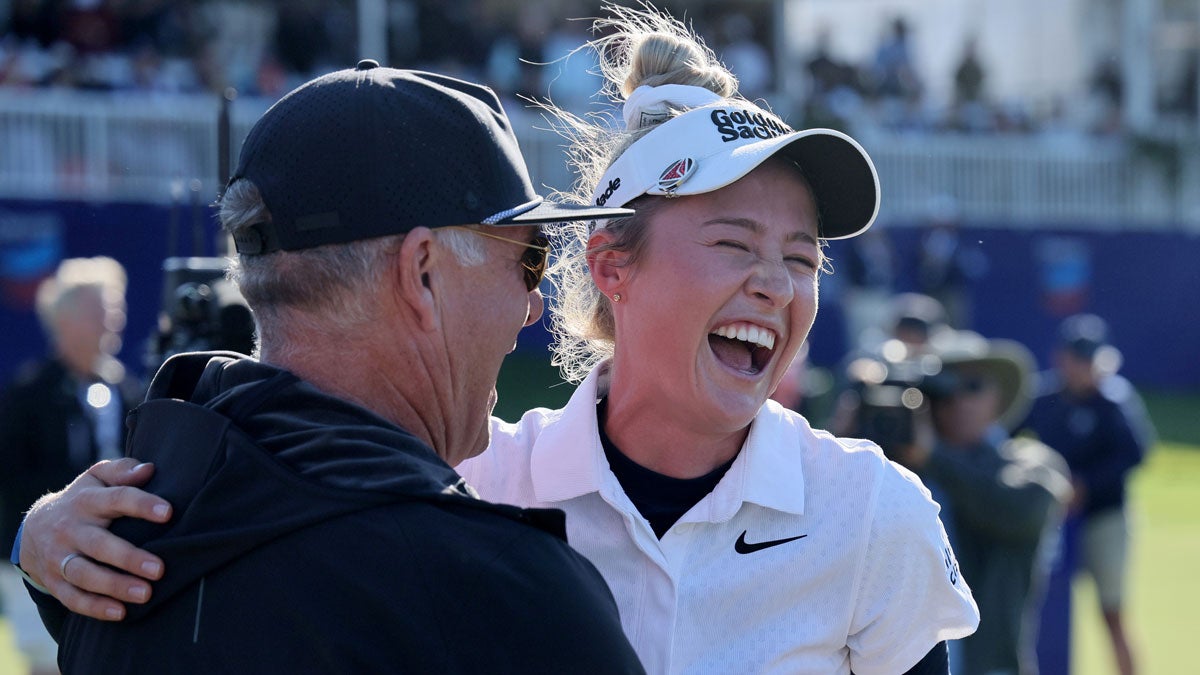Nelly Korda’s Met Gala star moment? Don’t get used to it, she says
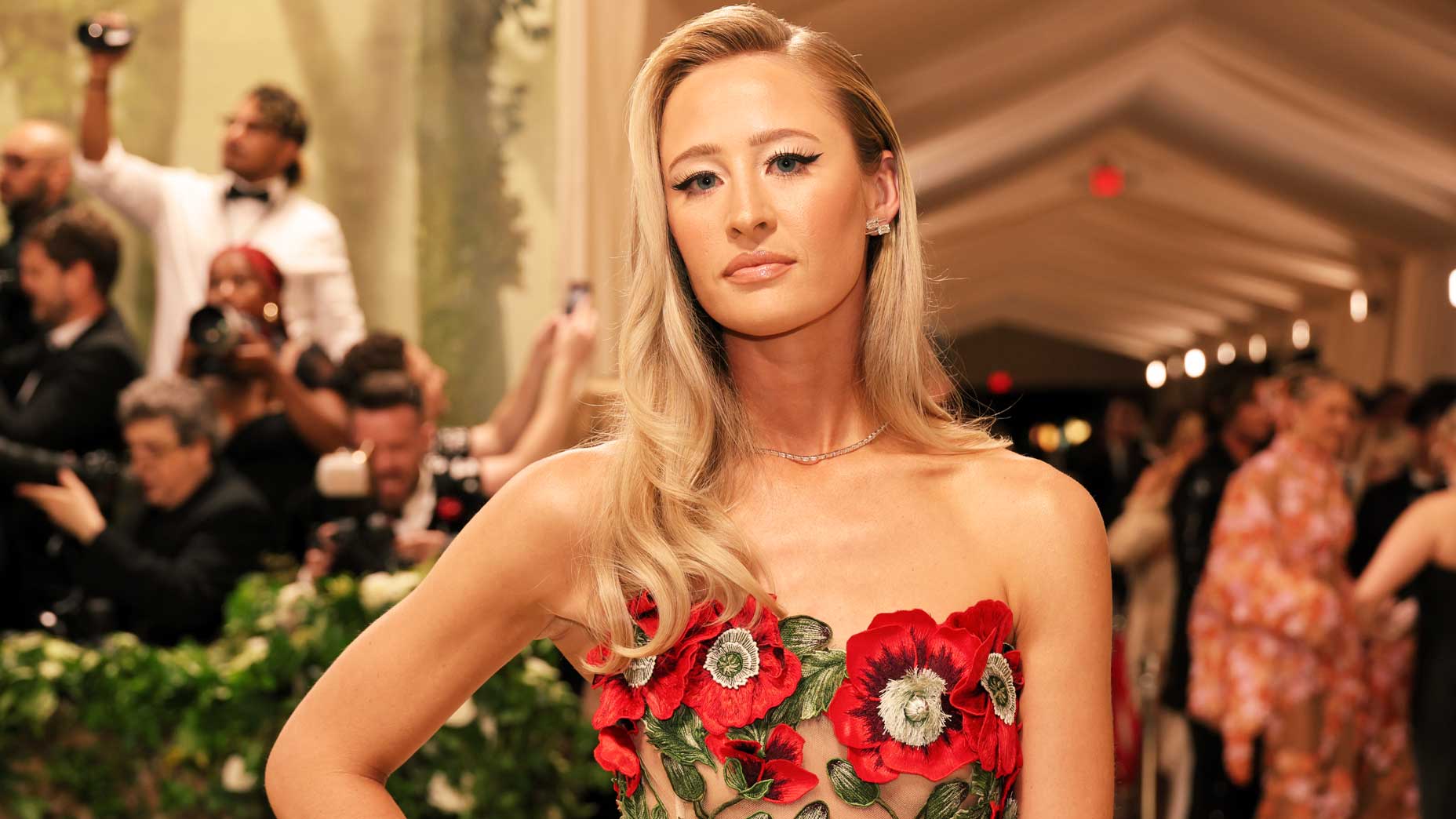
Nelly Korda attended Monday's Met Gala in New York City.
Getty Images
When Nelly Korda appeared in a red dress on the red carpet at Monday’s Met Gala in New York City, it felt like validation: golf’s latest, greatest star was announcing her arrival on one of the flashiest cultural stages anywhere.
According to our own red carpet correspondent, Korda was the first pro golfer to attend the Gala since Tiger Woods more than a decade ago. That feels significant. It also feels appropriate; she’s seized the attention of the golfing world with a record-tying five-tournament win streak and she’s built a monstrous gap between herself and the rest of the world. Surely it’s time the rest of the world should take notice. Surely it’s time for her ascent to superstardom.
But how’d the moment feel to Korda?
Mostly it felt different.
“It’s just — I mean, this is me,” Korda said as she addressed the media on Wednesday ahead of the Cognizant Founders Cup in New Jersey. “Visor on. Wearing golf clothes. This is my comfort zone.”
It was neat, she said, stepping outside of that comfort zone. She got to choose from a selection of Oscar de la Renta dresses (she went with a last-minute wardrobe change, settling on red) and she got the first spray tan of her life (“I couldn’t show everyone my lovely permanent sock tan,” she said) and she felt “like a princess.” But she also admitted she felt very small.
“I think I’m just a grain of sand in such a big, big room,” she said. “I was just in awe the entire night.”
In other words, a night of glamour has not gone to Korda’s head. And by Tuesday she was glad to have her feet back planted firmly on the grass.
So what do we make of this moment? Korda’s Met appearance came at a fascinating time in her career and in the larger landscape of women’s sports. As her win streak has rocked on, there’s been a general consensus among the golf pundit class that the league needs to capitalize on her brilliance, and fast, and in a big way. They’re right, of course; we watch sports for greatness, and greatness is what Korda keeps serving up. Korda’s greatness has made her relevant in a broadly identifiable way, and so her sport should take full advantage, and if not now then when? There have also been exhaustive comparisons to the way women’s college basketball soared to historic new heights this spring, and questions posed to Korda as to how she might help the LPGA replicate that success.
“I mean, I’m just out here doing what I love and hopefully that’s what grows the game naturally,” Korda said. “I’m not trying to push anything. I hope that people see me for who I am and that I love this game and do it naturally.”
Naturally. That was the focal word of her press conference. It was the perfect response. Tasking Korda with PR and brand-building for an entire sport isn’t really her job, after all, and it’s foolish to suggest that it should be Korda’s responsibility just because women’s basketball has done the same. Unlike Caitlin Clark, Korda has none of the baked-in pieces that helped to make Clark so popular — no team, no rival, no built-in fanbase, no March Madness tournament. Even though she’d never show it, you could understand if Korda is already sick of hearing the comparisons.
She returned to that word naturally in the next answer, too.
“At the end of the day I think if you perform well in your sport that’s what grabs people’s attention. I’m not the type of person that tries to push anything or does anything I’m not really comfortable with. So I hope that I just do it naturally and that catches people’s attention,” she said.
So what kind of person is Korda? The kind who wants it all: the pressure, the stage, the title of dominant World No. 1. The kind who’s eager to chase greatness. But she’s also a golf purist. She’s obsessed with the process. She relishes the opportunity to work on her game at home — after wins and even more so after losses — and she relishes the opportunity to test that game in the arena. And lately it’s been up to the task, most recently at April’s Chevron Championship, where she collected the second major of her career in her record-tying fifth win in a row. She felt the toll of all-in commitment in the hours that followed.
“That first night, Sunday, I really didn’t sleep much at all,” she said. “The adrenaline — you actually feel really sick. You can’t sleep. The adrenaline wears off and the body starts to ache a little bit. You’re like, oh-kay.”
That was a nod to the experience of winning. But post-round Korda also acknowledged that, as much as she wants her golf to do the talking, the sport needs more from the networks who carry it.
“We need a stage,” she said post-round. “We need to be on primetime TV, and we need to showcase the talent we have out here, which is a lot. We also need the support from not just the crowds but the television networks.”
The tournament was an obvious success both for Korda and for the tournament as a whole, which peaked at 1.9 million viewers and had NBC Sports crowing about its most-watched iteration of the event since 2010 — though broadcast averages were relatively flat year over year. It wasn’t perfect; pace of play was notably slow, which made a day of coronation and celebration feel sluggish down the stretch. (Our James Colgan recapped the underwhelming final-round broadcast here; not enough cameras and not enough action across a sprawling golf course.)
Korda’s sentiment was echoed by Matt Chmura, the LPGA’s chief marketing, communications and brand officer, in an interview with GOLF’s Jack Hirsh. He wasn’t overly keen on Clark-Korda comparisons, either, but did emphasize the lengths ESPN went to make the women’s NCAA tournament feel big.
“I think you can see the investment that the broadcasters [ESPN] have made on that side, in both the production quality and the timeslots that they’re on and the marketing around it. You can see the emphasis the NCAA has placed on it, and if the infrastructure is there and the elite athletes are there, there’s a market for it,” he said.
That brings us back to this week’s Cognizant Founders Cup, where Korda is chasing her sixth consecutive win. There are distinct signs of progress and more ways to watch than ever — ESPN+ has stepped up with several featured-group streams, which is a huge move that has opened up early-week coverage to the masses — but NBC’s coverage is largely restricted to streaming on Peacock and tape-delayed coverage on Golf Channel. There’s no live TV coverage other than a two-hour window on CNBC Sunday afternoon.
That’s not to say that Peacock can’t carry significant sporting events; an average of 23 million viewers took in the Dolphins-Chiefs playoff game on that platform earlier this year — the largest streaming-audience ever for a live sports event. But the majority of golf viewers still watch on linear TV, which makes the Founders Cup’s deference to the PGA Tour’s opposite-field Myrtle Beach Classic and the PGA Tour Champions’ Regions Tradition (both shown live throughout the week) particularly notable.
Korda continues to push the boundaries of what’s possible on the course. The work comes naturally and the golf does, too; Korda has spent years in red figures. Given she began this week on a red carpet, it still feels like this moment, all its history and gravity, should feel weightier. Like “naturally” isn’t happening as quickly as it should. Like the sports world isn’t meeting the moment and that we’re not all doing our jobs.
But week after week, there’s no question that Korda’s doing hers.


